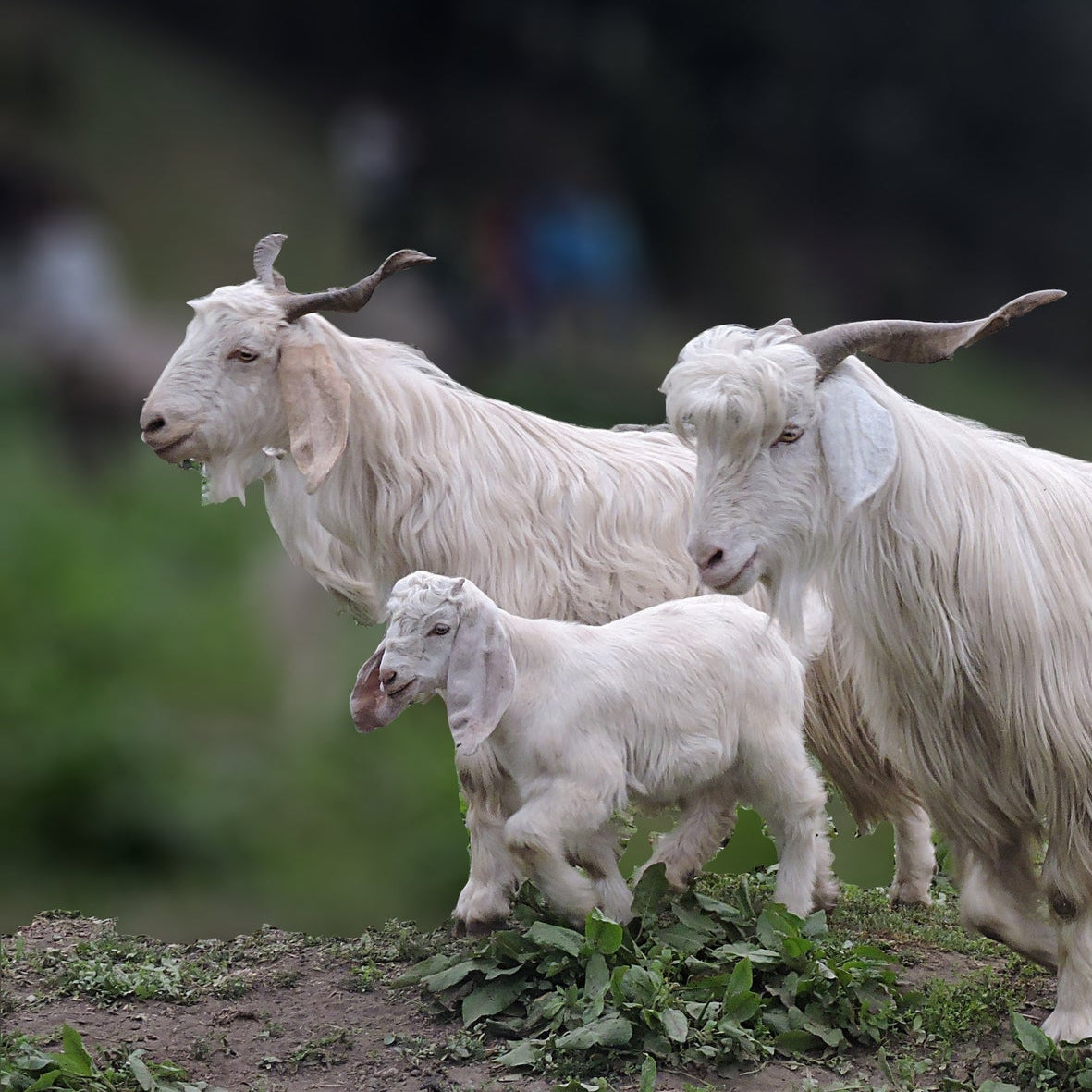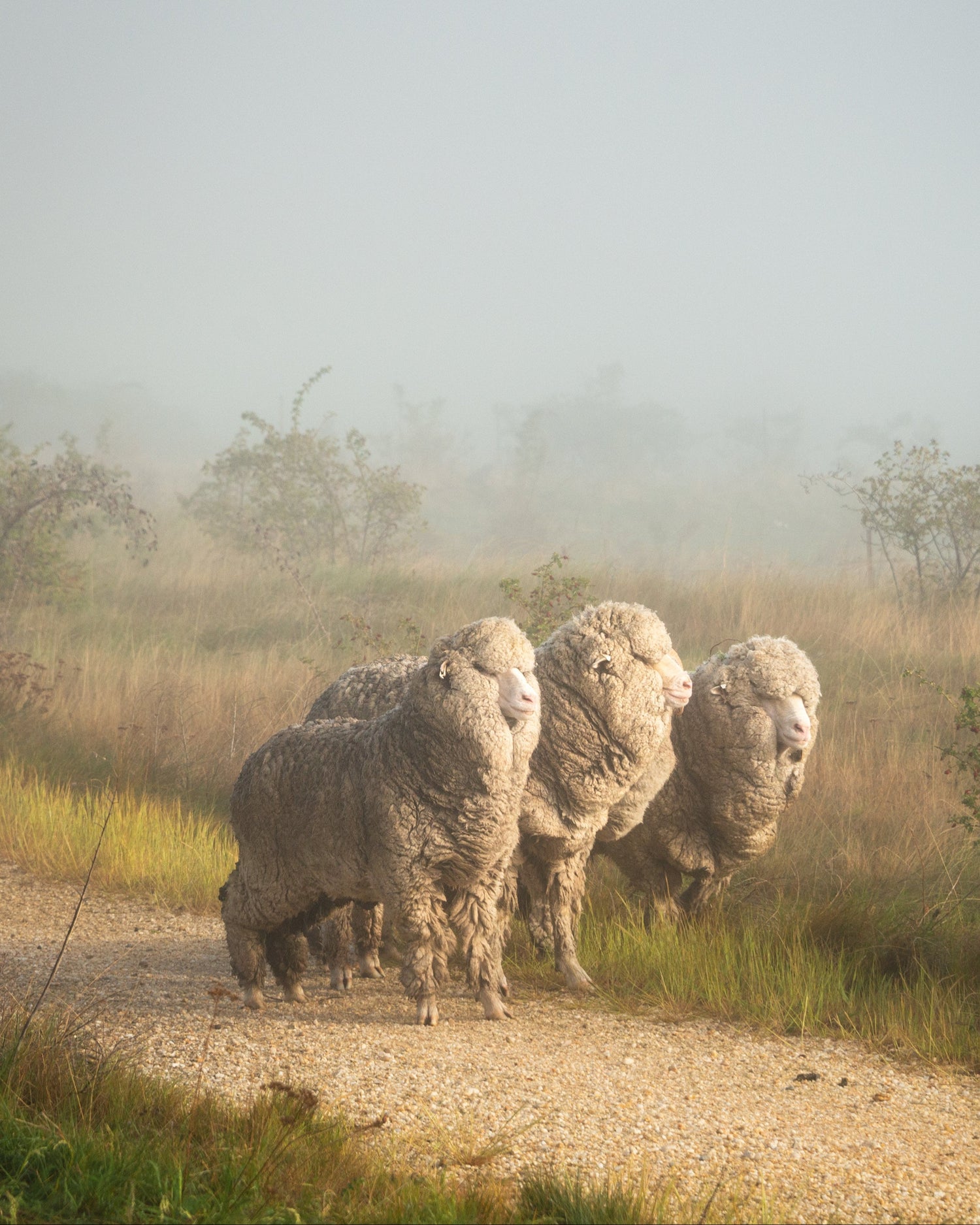Handpicked secondhand items that will meet your high expectations. We are inspired to recommend high-quality brands with traditional know-how and true craftmanship, convinced that you will love your new item as much as we do.
Because Cashmere is one of the most precious and delicate natural fibres in the world. Because Cashmere is a dose every day luxury. Because quality is a longterm investment.
We love fashion. But we don't want our clothes to exploit animals, people or destroy our planet. Embracing slow fashion.
We are grateful to the companies that support Lalaine by providing items for resale or materials for upcycling, helping us promote sustainability and creativity.
Our Promise: Careful Preparation of Every Item Before Sale
-
Handpicked with love
from a wide range of options, ensuring only the best quality makes it to you
-
Spa treatment
has been gently washed and/or steamed meticulously cared for and protected against moths by freezing for at least 72 hours, ensuring it's pest-free (learn more below).
-
Longlasting
Prepared for a lifelong journeywith you, ready to become a cherished part of your wardrobe
"Behind every garment, there is a fibre; behind the fibre, there is an animal and its keeper. That's why we believe every item deserves to be treated with respect. This conviction drives what we do ♥"

Good to know
Cashmere
The softest wool, cashmere, comes from a specific type of goat knowed as the « Cashmere goat ».
These goats are commonly found in Mongolia, Tibet, Northern India, Afghanistan and southwest China. They can withstand temperatures as low as -30C°, thanks to their insulating undercoat. These goats are among the most expensive animals in the world. It takes about four to eight goats to produce enough cashmere for an adult sweater. In comparison, one sheep can produce enough wool for four wool jumpers.
To harvest the precious fibres, the goats are tipically combed by hand twice a year. The amount of cashmere a goat produces depends on its age, health, size and genetic background.
The combing process is often long, traumatic and painful for the goats, and farm workers are under pressure to collect as many fibres as possible in a short time.

Good to know
Merino
Merino wool comes from the Merino sheep, a breed originally from Spain but now predominantly raised in Australia and New Zealand. These sheep thrive in extreme climates, enduring freezing winters and scorching summers. Their wool is naturally breathable, insulating in cold weather and cooling in heat, making it ideal for year-round use.
Merino wool is prized for its exceptional softness and fine fibers, typically less than 24 microns in diameter. A single Merino sheep produces 3–6 kg of wool annually, which must be shorn regularly to prevent health issues like overheating or mobility problems caused by excessive fleece growth.
However, the production of Merino wool has ethical concerns, particularly the controversial practice of mulesing. This involves removing strips of skin to prevent flystrike but is painful for the animals. While Australia accounts for 70% of global Merino wool production and continues mulesing, many organizations now promote non-mulesed wool to support more humane practices
Merino wool remains a luxurious choice due to its durability, biodegradability, and versatility.

Your choice
Cashmere, Merino, Alpaca, Mohair, Angora, Qiviut, and Vicuna rank among the world’s most valuable fibers. Known for their warmth, skin-friendly softness, hypoallergenic qualities, thermo-regulating properties, and durability, they are prized across all climates. But the question remains: is the production of these luxury fibers still sustainable today?
However, while these fibers are undeniably luxurious, their sustainability is questionable. The production of such wools often involves significant environmental impact due to overgrazing by livestock or the disruption of ecosystems to harvest fibers from wild animals. Furthermore, ethical concerns arise with practices such as intensive farming conditions for Angora rabbits or the stress caused to Vicunas during shearing. As demand for these rare materials grows, so does the pressure on fragile ecosystems and animal welfare standards. This raises important questions about whether their luxury truly outweighs their environmental cost.
